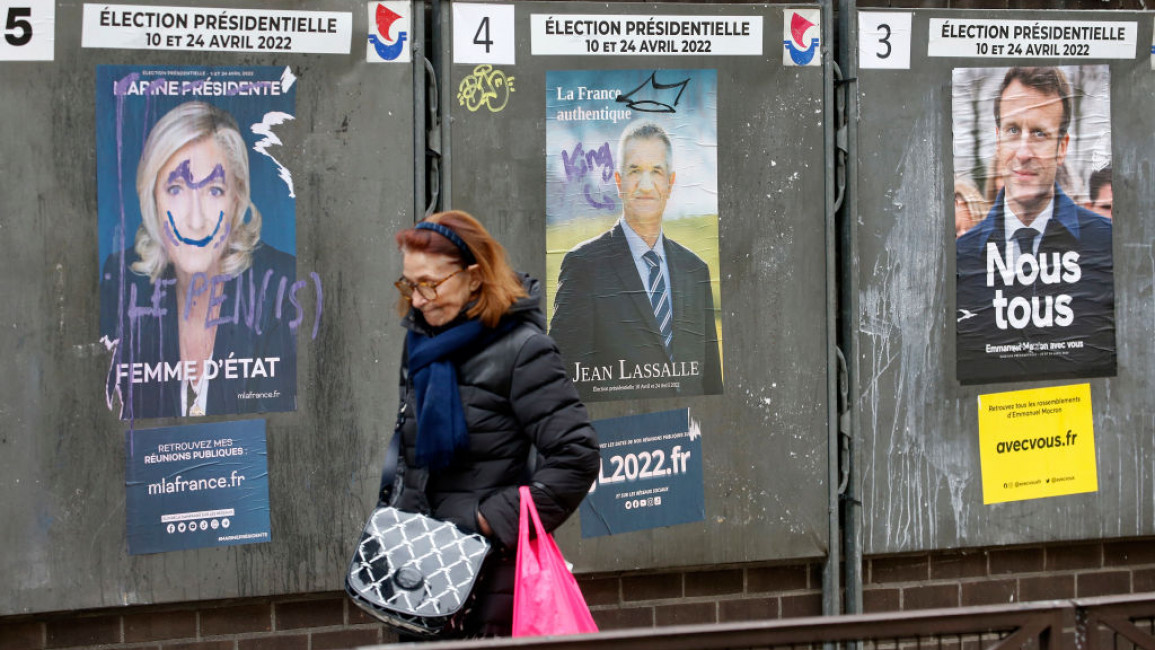Voting starts in tight French election marked by the rise of the far-right
France is heading to the polls on Sunday in the first round of its presidential election after an unusual presidential campaign overshadowed by Russia's invasion of Ukraine.
Stakes are particularly high for French Muslims and citizens of immigrant descent, who have endured a campaign marked by the rise of the far-right and rampant anti-immigration, anti-Muslim rhetoric.
Polls opened on Sunday morning in mainland France and in French embassies across the world, and on Saturday in several overseas French territories - to account for the time difference.
The two top candidates out of twelve running in the first round will head for a runoff vote on April 24.
The latest opinion polls predict that the second round will oppose incumbent president Emmanuel Macron (26.5% of voting intentions) and the far-right leader Marine Le Pen (23%).
If Macron and Le Pen reach the second round as forecast, analysts predict a much tighter second round than in 2017, when Macron thrashed his rival with 66 percent of the vote.
The latest polls point to an unprecedentedly high number of voters that were still undecided or did not plan to head to the polls on the eve of the vote.
Uncertainty is very high this time. Analysts fear that the 2002 record of the number of French voters boycotting a first round of 28.4 percent risks being beaten, with the 2017 absentee rate of 22.2 percent almost sure to be exceeded.
Le Pen's victory would be seen as a triumph for right-wing populism and send shockwaves across Europe and markets.
Stakes are particularly high for French Muslims, many of whom worry about life under Marine Le Pen's leadership.
Two days ahead of the vote, the far-right leader said she would push to ban the wearing of the Islamic headscarf in public if elected.
This year's electoral campaign has also been marked by the meteoric rise of Eric Zemmour, a former TV pundit who has become popular through his diatribes against immigration and what he denounces as the growing influence of Islam in French society.
Macron and Le Pen are closely followed in the polls by left-wing leader Jean-Luc Mélenchon (16.5%), who hopes to reach the second round at the expense of Le Pen or even President Macron himself - sparking an unprecedented second round that would oppose the country's political extremes.
The candidates of France's traditional parties, the right-wing Republicans and the Socialists on the left, are facing a debacle on election night, continuing a shake-up of French politics that began when Macron took power.
The Greens candidate Yannick Jadot, the Republicans' Valerie Pecresse and the flagging Socialist nominee Anne Hidalgo appear certain to be ejected in the first round.
French media will be allowed to start broadcasting projections of the final results as soon as polls close at 6pm GMT on Sunday.
Some 48.7 million voters are registered across France to vote in this election.



